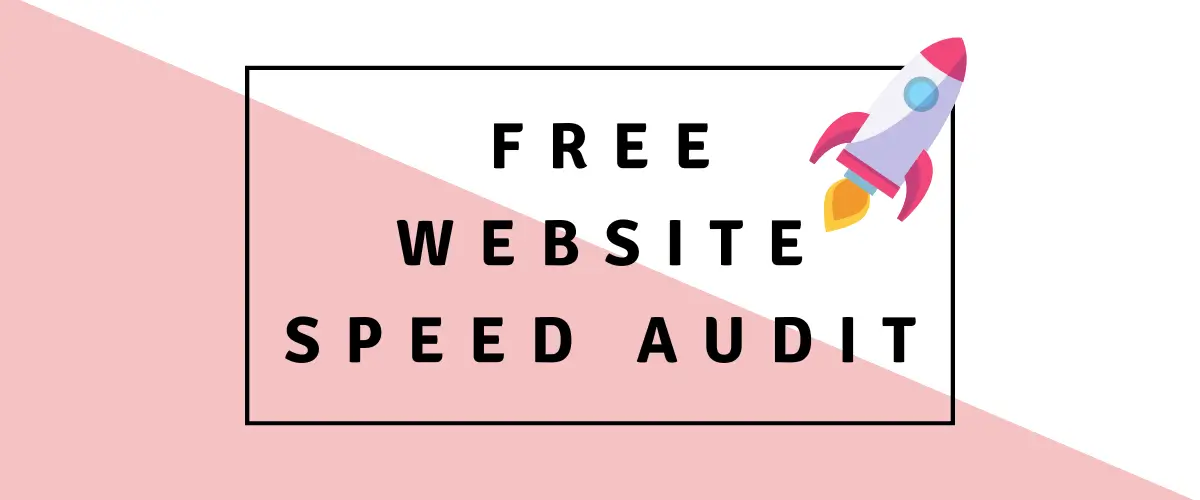
Why Is My Website Slow? Get a FREE Speed Audit
- Jelena Janic
- Freebies
- 05 Jan, 2025
A slow website is more than just an inconvenience—it’s a silent killer for your online success. Visitors bounce, sales drop, and search rankings plummet when your site drags its feet. But why does this happen? And more importantly, how can you fix it? Let’s break down the common culprits behind a slow website, the impact on your business, and how DNG Studio's Website Speed Optimization Services and Free Website Audit can turn things around.
The Most Common Reasons Your Website Is Slow
1. Unoptimized Images
Large image files are among the biggest offenders when it comes to slow-loading websites. Websites these days are heavily reliant on high-quality images—whether for e-commerce product shots, blog posts, or general visual appeal. However, if these images aren't optimized, they can easily overwhelm your website. Without proper compression, resizing, or the right format (like WebP or SVG for certain images), image files can weigh down your pages, leading to longer load times. Images that are too large for their intended display size exacerbate the problem.
In addition to compressing and resizing images, the right tools, such as lazy loading (loading images as the user scrolls), can reduce initial page load times. Image optimization is crucial for faster loading times and a better user experience, especially for mobile users who might face slower internet connections.
2. Bloated Code
Messy or excessive code—whether it’s JavaScript, CSS, or HTML—can act like digital baggage, slowing down your site. Websites often accumulate unnecessary lines of code over time, including unused CSS styles or JavaScript functions. It’s easy for code to become bloated when developers use third-party libraries or plugins that add extra features to your site but also contribute to unnecessary weight.
When your codebase becomes bloated, it can cause delays in how quickly the browser processes and renders your page. By minimizing your code, removing unnecessary elements, and consolidating scripts where possible, you can significantly improve load times. Tools like CSS and JavaScript minifiers can automatically remove extra spaces, line breaks, and comments, reducing the size of your code and speeding up your site.
3. Too Many HTTP Requests
Every time your site loads, it makes multiple requests for images, scripts, stylesheets, fonts, and other resources. The more requests your website has to make to load, the slower the page will be. This issue often occurs when a site has too many external elements like third-party widgets, plugins, or ads. Each of these elements makes an additional HTTP request, increasing the page load time.
Reducing the number of HTTP requests is key to optimizing your website’s speed. This can be done by simplifying your page layout, consolidating files like CSS and JavaScript into single files, and removing unnecessary external resources. By reducing HTTP requests, you can make your site more lightweight and faster to load.
4. Poor Hosting
Not all hosting providers are created equal. Cheap, shared hosting often means your website is competing for resources with other sites on the same server, which results in slow performance, especially during traffic spikes. Imagine your website running on a crowded highway—it will inevitably get stuck in traffic. Poor server performance and downtimes can also result in frustrating user experiences, which ultimately lead to lost customers.
Choosing a high-quality hosting provider that offers fast load times and reliable uptime is crucial for ensuring your site runs smoothly. Depending on your site’s needs, you might benefit from a Virtual Private Server (VPS) or dedicated hosting. These options ensure your site has more resources dedicated to it, avoiding the bottlenecks associated with shared hosting.
5. Lack of Caching
Without caching, your website has to load everything from scratch every time a user visits, which can significantly slow things down. Caching allows certain elements of your site—like images, scripts, and stylesheets—to be stored temporarily in a user’s browser or on a server. When users return to your site, their browser doesn’t have to re-fetch these elements, making the site load faster.
Implementing effective caching strategies is key to improving site speed. Browser caching allows your users' browsers to store certain static resources for a set period, while server-side caching helps reduce the load on your server by storing copies of frequently accessed content. With proper caching, you can drastically reduce load times and improve the user experience.
6. Outdated Plugins or Themes
Using outdated or poorly coded plugins and themes can severely impact performance. Over time, themes and plugins may become incompatible with newer versions of your website's platform or with each other. Additionally, poorly coded plugins might be inefficient or introduce unnecessary code into your site, contributing to slower load times.
Regular updates and testing are essential for ensuring your plugins and themes are optimized and up-to-date. Outdated software might also introduce security vulnerabilities, which is another reason to keep your site updated. Consider conducting routine plugin and theme audits to remove any that are no longer needed or slowing your site down.
Why Speed Matters: The Impact on Your Business
A slow website doesn’t just frustrate users—it also:
-
Increases Bounce Rates: Visitors won’t wait for your page to load. A delay of just a few seconds can make them click away. According to research, 40% of users will abandon a site that takes more than 3 seconds to load. When your visitors leave before engaging, you lose out on potential leads and sales.
-
Hurts Your SEO: Google prioritizes fast websites in its rankings. Slow load times can drag your site down the search results, making it harder for potential customers to find you. In fact, Google has confirmed that site speed is a ranking factor, especially for mobile searches. If your website doesn’t load quickly, it can have a serious impact on your visibility and online presence.
-
Reduces Conversions: Every extra second of load time can decrease your conversions by up to 7%. If you're running an e-commerce site, this could be costing you sales. A faster website encourages users to stay longer, explore more pages, and make purchases. It's crucial to ensure that your site is optimized for speed, so you don’t lose customers due to frustrating load times.
How We Can Help: Website Speed Optimization Services
At DNG Studio, we specialize in website speed optimization to ensure your site performs at its best. Our services include:
Image Optimization
Compressing and resizing images without compromising quality to improve load times. We use advanced tools that automatically optimize your images to the best balance of quality and file size, ensuring that they load quickly without losing visual appeal.
Code Minification
Cleaning up your code by removing unnecessary spaces, comments, and line breaks, making it load faster. By minifying HTML, CSS, and JavaScript, we can reduce file sizes and make your site more efficient. This also makes it easier to maintain and troubleshoot your website.
Caching Implementation
Setting up advanced caching systems for quicker repeat visits. Caching helps your site load instantly for returning users. We set up browser caching, server-side caching, and CDN (Content Delivery Network) integration to ensure your site loads lightning-fast, regardless of user location.
Hosting Recommendations
Guiding you to reliable, high-speed hosting solutions that meet your website's specific needs. We'll help you select the right server configuration for optimal performance, whether you need shared hosting, VPS, or dedicated hosting.
Plugin & Theme Audits
Reviewing and optimizing your plugins and themes to improve performance. We ensure that your site’s functionality doesn’t come at the expense of speed. By eliminating unnecessary or outdated plugins and themes, we ensure your site remains lightweight and fast.
Get Started with a Free Website Audit
Not sure where to start? Our Free Website Audit is the perfect first step. Here’s what you’ll get:
- A Detailed Analysis of your site’s speed, SEO, user experience, and mobile responsiveness.
- Actionable Recommendations to fix performance issues and enhance your site’s speed.
- Insights that help you understand how your website stacks up against competitors and industry standards.
Get Your Free Audit Now!
With our comprehensive audit, you’ll gain clarity on what’s slowing your site down and how to address it effectively. The insights we provide are designed to get you the results you need to improve performance and boost user experience.
Success Stories: How We’ve Helped Businesses Like Yours
One of our clients, a boutique e-commerce store, saw their load times drop from 8 seconds to under 2 seconds after using our optimization services. The result? A 35% increase in sales and a noticeable improvement in search rankings. Fast websites convert better—no exceptions.
Your business could be next. Let us help you optimize your website and start seeing real improvements today.
Final Thoughts
Your website is often the first impression your audience has of your business. Don’t let a slow-loading site ruin that impression. Whether it’s unoptimized images, outdated plugins, or poor hosting, we’ll identify the issues and fix them. Start by taking advantage of our Free Website Audit and see the difference for yourself.
Request Your Free Audit Today!
"Speed is a feature. The faster you can make your website, the more people will stick around." – Marissa Mayer
